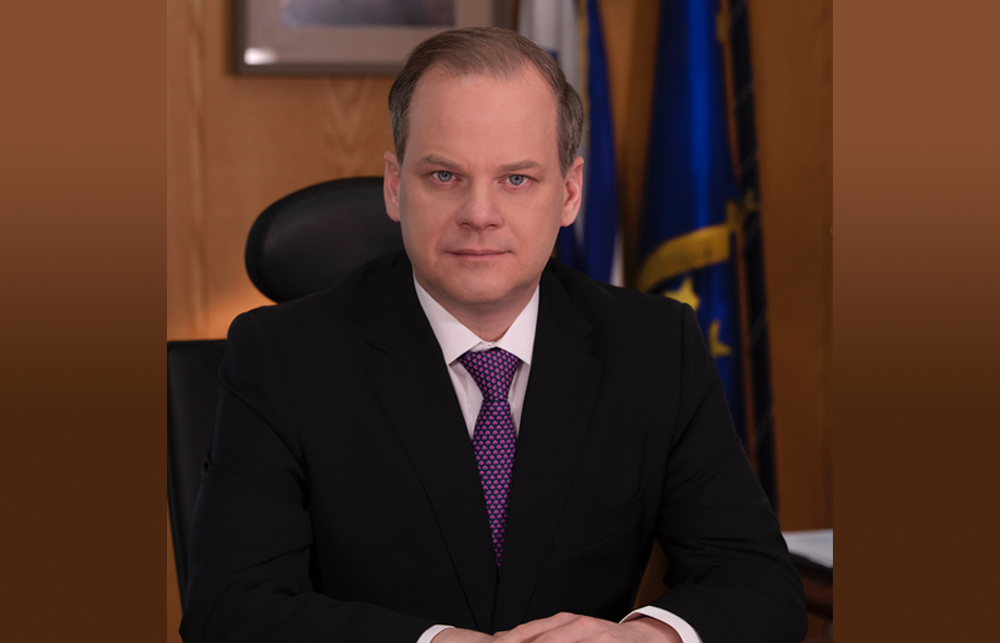
22 Nov Interview with Kostas Achillea Karamanlis, Minister of Infrastructure and Transport, Greece
Greece has successfully pulled itself from a severe economic depression to becoming one of the most sought after investment destinations in south-eastern Europe.
What are the government’s overarching goals with its upcoming infrastructure projects?
The Ministry of Infrastructure and Transport devised a €13-billion comprehensive infrastructure plan, which is funded in large part by the European Union’s Recovery and Resilience Facility and other EU Funds. It is the largest public works and infrastructure plan since the Athens 2004 Olympic Game. As of today, we have managed to tender projects amounting to €3.2 billion and initiated the tendering process for projects worth €8 billion.
Our top priority is to provide infrastructure developments that serve a specific strategy. We want Greece to become an infrastructure hub and a competitive intermodal corridor for the wider south-eastern European region. With the expansion of the Suez Canal, Piraeus has become an important hub and port of entry for products coming from Asia. Our infrastructure projects aim to connect ports to industrial centres by rail; a total of €4.5 billion has been put towards this segment. We have also commenced the third line of the Athens metro.
We are connecting the port of Thessaloniki — the second biggest port in Greece — with the ports of Kavala and Alexandroupoli. We have an agreement with our Bulgarian neighbours to connect the port of Alexandroupoli — a very important port from a geopolitical point of view — with ports on the Black Sea under the Sea2Sea project.
We have a twofold target. On one hand we will promote green transport and infrastructure projects, such as our rail development, and on the other hand we will elevate Greece’s position through infrastructure aimed at the greater south-eastern region. We want to put the country on the map as a significant logistics centre for the region and ultimately play an important role in safely moving cargoes from ports to logistics centres. Our logistics sector has the potential to contribute up to 5 percent of our gross domestic product.
What kind of local investment opportunities are we seeing that could be of interest to investors from the UAE?
Bilateral relations between the United Arab Emirates and Greece are moving forward in all fields of mutual interest. Prime Minister Mitsotakis has visited Abu Dhabi three times since 2009. The signing of several memorandum of understandings in economic fields shows that our strategic partnership is growing and thriving. Trade between Greece and the United Arab Emirates increased significantly in 2021 by around 72 percent.
Through our partnerships we aspire to witness tangible progress in health care, infrastructure, renewable energy and other sectors. We have projects focused on expanding motorways. We are currently building the largest motorway in the European Union in Crete, which is around 300 kilometres long. This will further develop the island, which has a lot of potential.
Airports are also another important strategic option for investors from the United Arab Emirates. We have 14 airports, which for 40 years have been conceded to the private investor Fraport. Our plan is to invite foreign investors to play a larger role in our 23 remaining airports, such as the Kalamata airport in the Peloponnese region.
We are also keen on promoting water supply infrastructure projects. One of Europe and the world’s biggest challenges will be the management of our scarce water supplies. We have invited several foreign water companies with higher technical expertise than our own to participate in all related projects. Many capable and high-level construction and technical companies based in Abu Dhabi play an important role in this segment in the Middle East and may be interested in these projects.
The United Arab Emirates was this year’s guest of honour at the 86th International Thessaloniki Fair in September, which highlights our enhanced trade and investment relationship. The fair is a huge event for Greece and international affairs in Europe. We aim for further participation with the country in the fields of technology, investment, tourism and infrastructure.
What is the country doing to support its tourism sector as travel picks up after the Covid-19 pandemic?
Our tourism industry is our crown jewel; it comprises 20-25 percent of our gross domestic product. Greece is currently having one of its best tourist periods since 2019, which was a record year. We are working closely with the Ministry of Shipping. This sector is the second most important in Greece, amounting to around 11 percent of our gross domestic product and is expected to grow rapidly. We are trying to make Greece an even more advanced touristic destination by upgrading our ports and private marinas.
Athens International Airport — one of the most successful airports in Europe — is undergoing a tendering process to sell a 30 percent stake owned by the Greek government. We are upgrading ports, marinas and airports and inviting foreign investors to join our efforts in growing key sectors of the Greek economy.
How has the investment climate in Greece changed over the last decade?
Greece was a country on the brink of disaster. The nation lost one-fourth of its gross domestic product in the 2008 crisis and faced a crippling depression. The country’s banks nearly collapsed and everyone in the European Union and abroad contemplated a Grexit. However, things have now turned around thanks to Mitsotakis’ administration. We were praised internationally for the way we dealt with the Covid-19 pandemic and have undergone an extremely successful digitalisation process.
Foreign direct investment has grown over the last couple of years and is currently at an all-time high. We invite foreign investors to look closely at our assets and privatisation projects in play. We are here to facilitate and give out all necessary information to interested investors. We currently have one of the most investment-friendly governments in the European Union. Additionally, asset prices in Greece have still not skyrocketed and many opportunities are present in this sector. These factors have created an attractive environment for foreign investors to join a country that leads the south-eastern region of the European Union in many fields.


Sorry, the comment form is closed at this time.